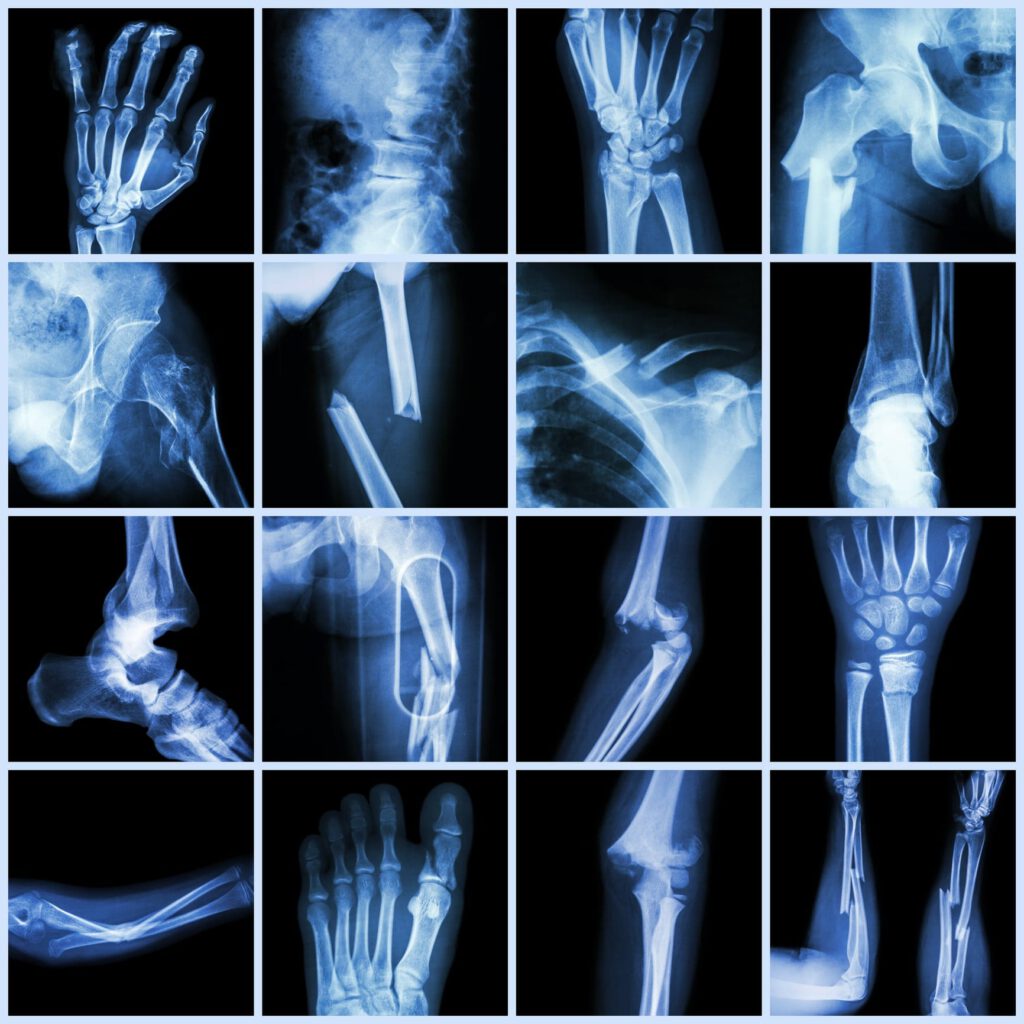For years, many people who are at higher risk for bone fractures — a complex and costly healthcare problem that affects more than nine million people worldwide annually — have heard a familiar refrain: to consume more calcium and vitamin D.
Now, using anonymized 23andMe data from consenting customers, a team of international researchers has identified 15 genetic variants related to increased fracture risk. Their study also went a step further, using genomic information on other risk factors to examine their causal role in developing fractures. They found that only bone mineral density and muscle strength are correlated with susceptibility to bone fractures.

Bone Mineral Density
Contrary to the long-considered “gold standard” for fracture prevention, the researchers determined that vitamin D and calcium do not directly decrease fracture risk. Instead, the team’s results show that the most valuable interventions should focus on increasing bone mineral density and muscle strength.
“One of the most important insights from our work for patients at risk of osteoporosis is obtaining robust evidence from the genetic studies that ‘widespread’ vitamin D and calcium supplementation is unlikely to be effective for the prevention of fracture,” said Fernando Rivadeneira, Genetic Epidemiologist from Erasmus MC and the lead author of the study.
However, researchers caution that there are limitations to their finding. For instance, some groups may be underrepresented this study, as the majority of individuals in the study cohort were of European ancestry.
The study was co-led by researchers from Erasmus University Medical Center in Rotterdam, the Netherlands, and McGill University in Montreal, Canada. It analyzed de-identified data from more than 500,000 individuals, including 23andMe customers who consented to participate, making it the first and largest genome-wide association study for fracture risk. The work builds on previous research by scientists at McGill.
Diet and Exercise
Despite the findings, the scientists said individuals should not use this study to change their medical regimes.
“Patients using osteoporosis medication should not discontinue their supplements before consulting with their treating physicians,” said Rivadeneira. “Procuring a healthy diet, remaining physically active, and getting 15 minutes of sun exposure every day are the main pillars of sustainable bone health.”
Beyond the genetic associations identified, the study also marks an important milestone for investigating genetic relationships with known interventions for different conditions. The scientists hope to use this study as a model for research into other health risks.